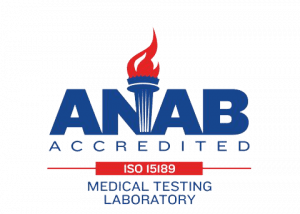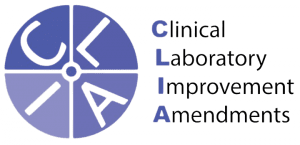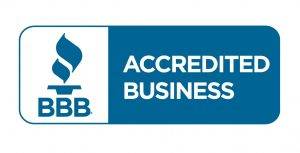Even though being pregnant is an exciting moment, there might be worries if paternity was previously unknown and DNA testing wasn’t done until after the baby was delivered. However, prenatal paternity testing may now be performed even before conception by looking at fetal DNA that is circulating in the mother’s blood, thanks to advancements in genomics. Companies like ChoiceDNA provide accurate Noninvasive Prenatal Paternity Testing, reducing the risks associated with more conventional invasive techniques and providing definitive paternity findings.
Knowing the basics of prenatal DNA testing enables expectant parents to make informed decisions at every stage of their pregnancy. Once the baby is made public, you may read the following guide, which includes crucial criteria, methodology, accuracy, and more, to understand more about ChoiceDNA and your testing options.
Can you do a DNA test while pregnant?
Yes, a DNA test while pregnant is possible. There are several reasons why a pregnant woman would decide to get tested for paternity before giving birth. The results of a paternity test can be crucial for determining medical variables that may have an impact on your unborn child’s health as well as for securing legal rights such as child support, custody, benefits, and inheritance, in addition to identifying the kid’s second father.
Several types of DNA tests can be performed during pregnancy:
- Amniocentesis: To take a sample of amniotic fluid from the amniotic sac, your healthcare professional will put a needle through your skin and into your uterus. Amniocentesis takes place throughout weeks 16–20 of pregnancy.
- CVS: Your healthcare professional extracts a little sample of placental cells using a needle inserted into your uterus. Whether it is safer to insert the needle through your vagina or your abdomen will be decided by the healthcare practitioner. CVS develops at about 11 or 13 weeks during pregnancy.
What Diseases Can be Detected Through Prenatal Genetic Testing?
More than 190 genetic disorders can be detected by prenatal genetic testing, including:
- Down syndrome
- Spinal muscular atrophy
- Hemoglobinopathies like sickle cell
- Neurological issues
- Metabolic disorders
Detecting risks early empowers families to make informed decisions and improve outcomes.
Can you get a Paternity Test while pregnant?
Traditionally, to establish paternity in pregnancy, intrusive techniques like amniocentesis or CVS were required. Syringes are used in both procedures to extract fetal cells, which offer DNA for analysis but also present health risks to the mother and child. Thankfully, advanced non-invasive techniques like ChoiceDNA’s NIPP testing have made paternity findings feasible without endangering pregnancy.
Non-Invasive Prenatal Paternity Testing (NIPP):
Using at home DNA test kits and cutting-edge sequencing, ChoiceDNA provides accurate NIPP testing. Without risking termination, expectant mothers send a simple blood sample obtained by their doctor for examination using its proprietary techniques.
The mother’s bloodstream mixes and circulates with the DNA of the unborn child throughout pregnancy. It is necessary to separate and examine fetal DNA strands from the overwhelming amount of maternal DNA to determine paternity early on. ChoiceDNA employs next-generation sequencing and state-of-the-art sequencing technology to determine paternity indicators and identify fetal DNA for conclusive findings.
The NIPP Evaluation Process
At ChoiceDNA’s accredited laboratory, fetal genetic material is extracted and enhanced from maternal blood components using proprietary techniques after receiving the pregnant mother’s blood sample. The whole DNA content is then mapped using state-of-the-art DNA sequencing technology, which recognizes the unique genetic markers of paternity in the fetus and compares them to the profile of the potential father.
The sophisticated computer analysis looks at potential intersections between the fetal gene and paternal contributions. This DNA test profiles particular DNA signatures at several locations along the genomes of paternity markers to provide relative probability scores to potential father possibilities. Couples may proceed with their legal files with confidence and peace of mind, knowing that reports establish paternity with 99.9% accuracy.
Obtaining Blood Sample
First, blood is taken directly from the pregnant mother at ChoiceDNA Center. This blood sample contains both the developing embryo’s and the mother’s DNA. The growing fetus receives continual nutrition and waste filtration from the mother’s placenta, which is why this occurs. An exchange of DNA takes place to enable its presence in the mother’s circulatory system.
Separating the DNAs
Subsequent steps include advanced laboratory techniques; the mother’s blood sample separates and extracts the fetus’s DNA. This is possible because the fetus only contributes a tiny quantity of DNA to the mother’s bloodstream. The sample is brought to the lab for DNA analysis, where the repetitive sequence of genetic markers is first extracted from the particular STR loci (short tandem repeat). Everybody has their own set of these STRs.
Identification and Comparison:
In order to extract the STR and compare it with the STRs of the fetus, a blood sample from the prospective father is also obtained. To determine the possibility of paternity, the STRs of the father and the fetus are compared after they are identified.
Results
The results of NIPP tests are widely known for their accuracy and precision. It’s critical to use a certified, trustworthy laboratory such as ChoiceDNA if you want results that are 100% correct.Don't Ruin Your Relationship By Misunderstanding.
Get Accurate Answers With Our Paternity Test!

Advantages of Prenatal NIPP Testing
Non-Invasive: Removes the risk of miscarriage linked to more intrusive tests.
Early insights: Offers clarifications on paternity from as soon as eight weeks.
Home DNA Kits: The clinical visits are avoided with a straightforward blood draw in the physician’s office.
Quick Results: In just a working day, DNA-based information
Very precise: 99.9% accuracy is achieved by utilizing sophisticated testing.
Conclusion
Parents can now provide important answers regarding ancestry and illness at an early age, with the advancements in prenatal paternity and genetic testing. DNA testing available today is reliable, easily accessible, and beneficial for mental clarity. Consult your healthcare practitioner about your choices to determine whether prenatal DNA testing is right for you.
Using Non-Invasive Prenatal Paternity Testing (NIPPT) has significantly improved the quality of prenatal care. ChoiceDNA offers Non-invasive prenatal Paternity Testing (NIPPT) a secure and simple way of testing for confirming paternity by examining cell-free fetal DNA from the mother’s bloodstream. Many pregnant parents find it an appealing alternative due to its precision and minimal danger. To offer the finest service available to the mother and the growing fetus, the decision to go through with NIPPT should ultimately be decided in consultation with medical specialists, considering specific circumstances, medical information, and genetic diagnosis.



















